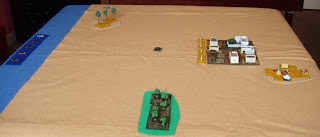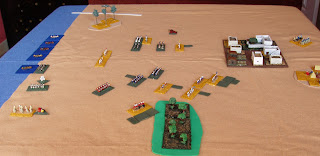Think of what our Nation stands for,
Books from Boots' and country lanes,
Free speech, free passes, class distinction,
Democracy and proper drains.
Lord, put beneath Thy special care
One-eighty-nine Cadogan Square.
From ‘In Westminster Abbey’ by John Betjeman
You might think that The
Polemarch has gone totally mad (to quote Sir Hiss from Disney’s Robin Hood). You
might be right. As I write this democracy, in any modern, Western, liberal
reading of the word, is under threat. Sadly, that threat seems to be from
within, from people (voters, politicians and journalists) who do not seem to
realise how democracy is supposed to work. Now, we might decide to forgive the
voters, but the politicians and journalists who fail to accept that they cannot
do what they want to do at the expense of the rule of law, the independence of
the judiciary and basic honesty probably cannot, and almost certainly should
not be forgiven, especially if they have studied PPE, which many of them have
(hint: PPE = Politics, Philosophy and Economics).
Anyway, the polemic is over. I
have reverted to something safe, the reading of classical history. Or rather,
as it turns out, not so safe at all:
Mitchell, T. N., Democracy's
Beginning: The Athens Story (Yale: Yale University Press, 2015).
Mitchell starts by noting that
after a high point sometime soon after 1989, democracy has been plunging into
deficit as world leaders start to tighten up control over who votes for what,
whether that is directly, by, for example, shooting people who vote the wrong
way, or indirectly, by taking over news feeds and pumping out what is politely
called ‘disinformation’ to people, who turn out to be a great deal more
credulous than modern education should really allow.
But what is this thing called democracy
and why should it matter? Some of the answers, at least, lie buried in Athens
of the fifth and fourth centuries BC, the Athens of the Persian Wars, Peloponnesian
War and subsequent activities down to conquest by the Macedonians. The first
thing I noted about this is that the adage that democracies do not start wars
is untrue. For much of this time, Athens was bellicose and got into conflicts
that it did not need to.
The second thing I noticed about
this (and this saves the post from being a rant about lack of democracy, and
injects some wargame related content) is that it was requirements for military
activity that drove the democracy, at least in part. The semi-wealthy citizens
were required for hoplite service. The less wealthy than that, in Athens,
provided rowers for the fleet. Athens had, by the time of the assorted wars,
very much become a naval power. The whole strategy against Sparta was to hunker
down behind the defensive walls of Athens and the long walls to Piraeus and
send the fleet out to strike at Spartan interests around the Mediterranean.
The upshot of this was that the
lower (citizen) classes gained political influence. They were needed, not for
taxes to fund the military expeditions, but for manpower. With manpower
requirements comes a degree of political influence and autonomy. Athens evolved
(the early process is not exactly clear) into a direct democracy where any
citizen (who were of course men, not women, foreign or slaves) had an equal vote.
Indeed, the state paid for citizens to attend the Assembly and to be members of
juries, at least for most of the duration of the democracy.
The problem was, of course, that
occasionally people get mad ideas in their heads, such that one more push in
the war will see success. They, therefore, reject perfectly reasonable terms
offered by the other side, believing that they can do better. Alternatively, Mitchell
suggests, they get lead astray by demagogues into backing perfectly lunatic
schemes such as the Athenian campaigns against Syracuse, which were never going
to work. Not only that, but the expedition was reinforced when it was already
pretty much a disaster, leading to a further loss of men and money.
Here, the account starts to sound
startlingly modern. The voters are led astray by the elite who have their own agendas.
It all ended in disaster with oligarchic revolts, abject surrender and a reign
of terror, not to mention occupation. If the Spartans had not been relatively
benign in victory, Athens would not have risen again.
Athens, however, did rise again
and, again, became a power in the Greek world. This was largely due to the fact
that the citizen body remembered how democracy worked and established a
post-war constitution with some fairly swingeing checks and balances against
any individual making a bid for tyranny. That, however, did not stop warfare.
The fleet rowers and hoplites still remembered Athens’ imperial glory (and
also, probably, the money which built the famous buildings around the Agora).
They still aimed for it. A few victories and draws were followed by assorted
disasters, culminating in the rejection of terms from Macedonia and collapse. A
revolt after the death of Alexander also failed and the democracy in any
meaningful sense was at an end.
I could now start to moralise
about the condition of democracy in the world, or in my own country. I could,
but I will not because I have only just over a hundred words left, and because
I do try to keep politics out of the blog. A few lessons for wargaming can be
gleaned, however.
The first idea is that the
Athenian forces were not hired hands or mercenaries. They were citizen
soldiers, engaged in the democracy of their day. Offices in Athens rotated around
the citizens and many were decided upon by lot. The upshot is that many
citizens knew how the democracy we supposed to work and were willing to fight
for it enthusiastically, both in the Assembly, the courts and on the fields and
seas of battle. While they were not as well trained, perhaps, as Spartans, they
knew what they were fighting for and loved what they knew.
The second lesson is, I suppose,
the old one that just because everyone does a stupid thing (or votes for it)
it does not make it any less a stupid thing. But now I am heading back towards
modern politics and, anyway, I have run out of words.





